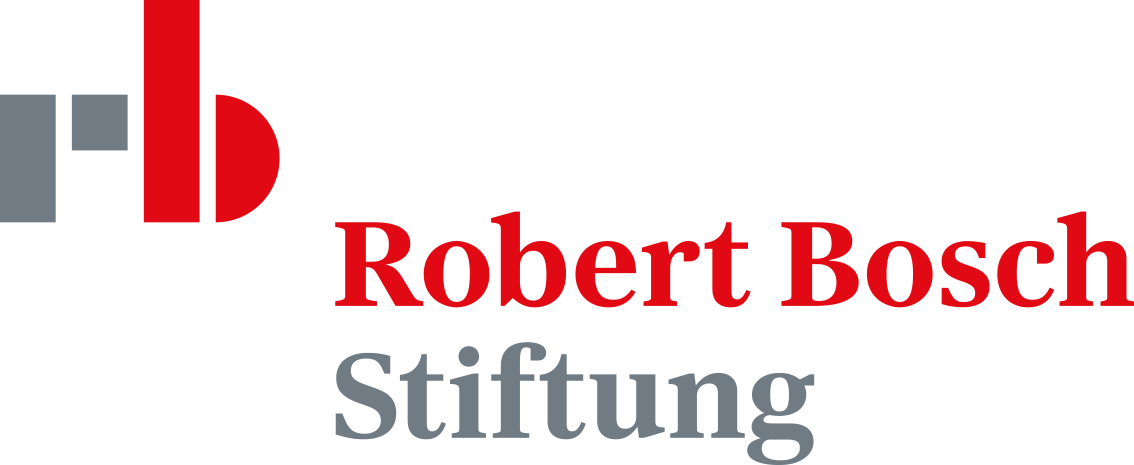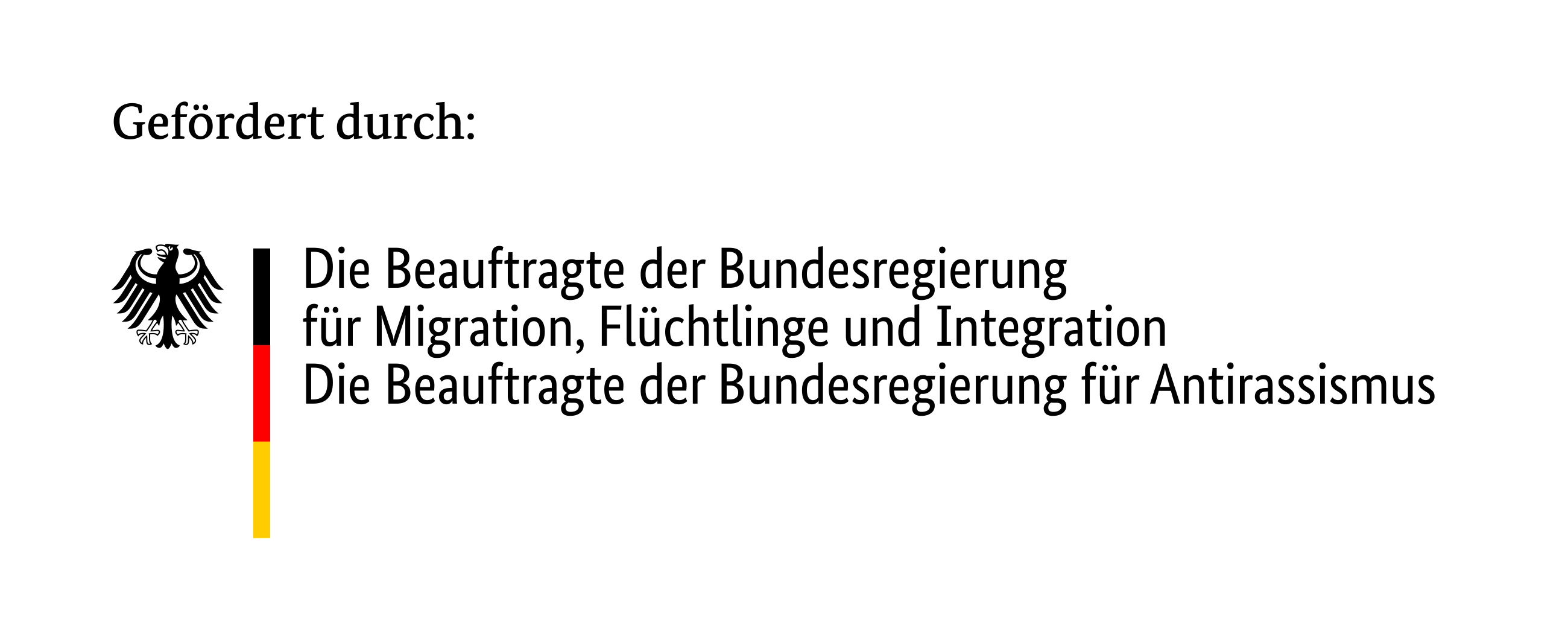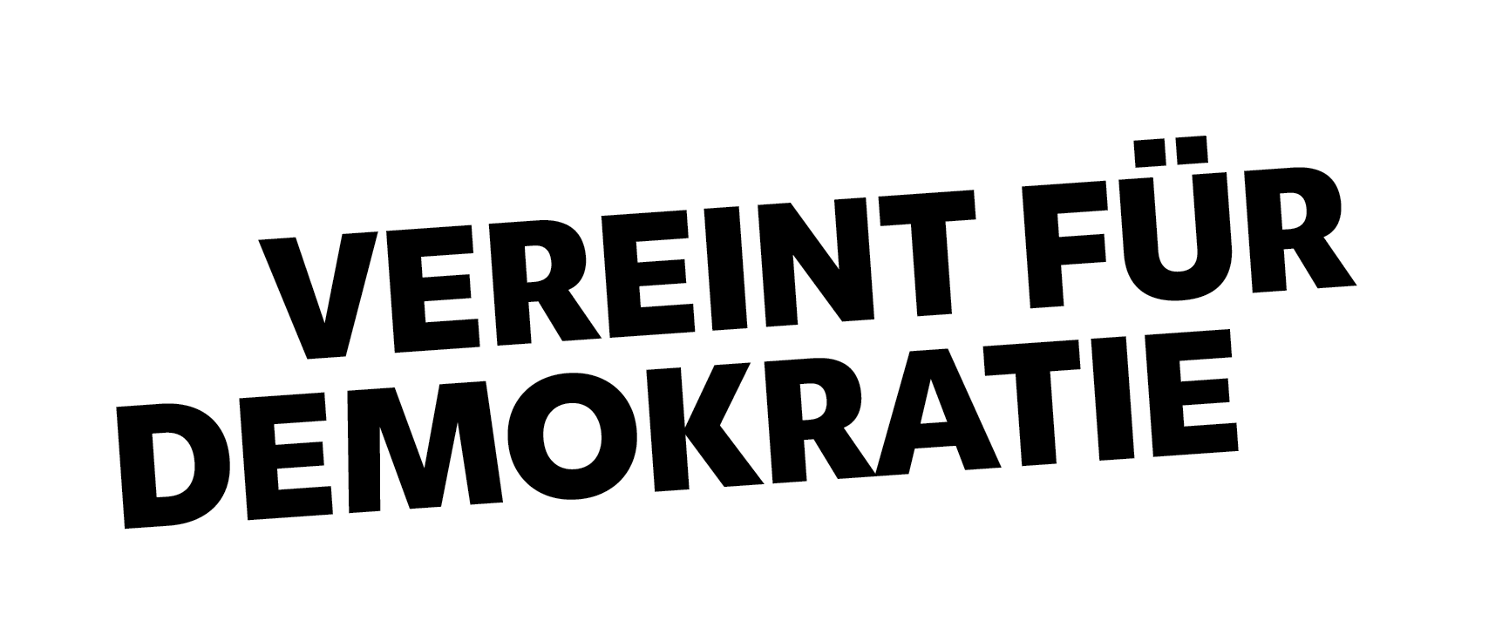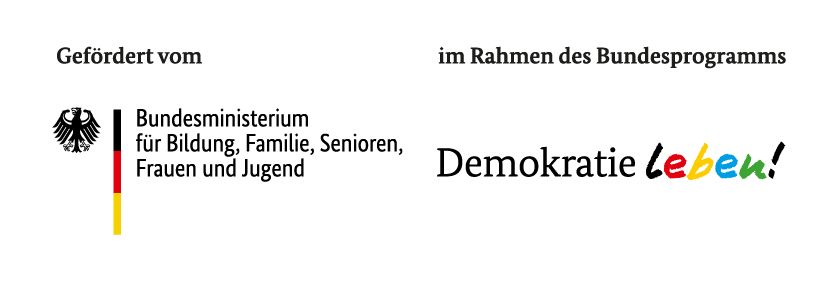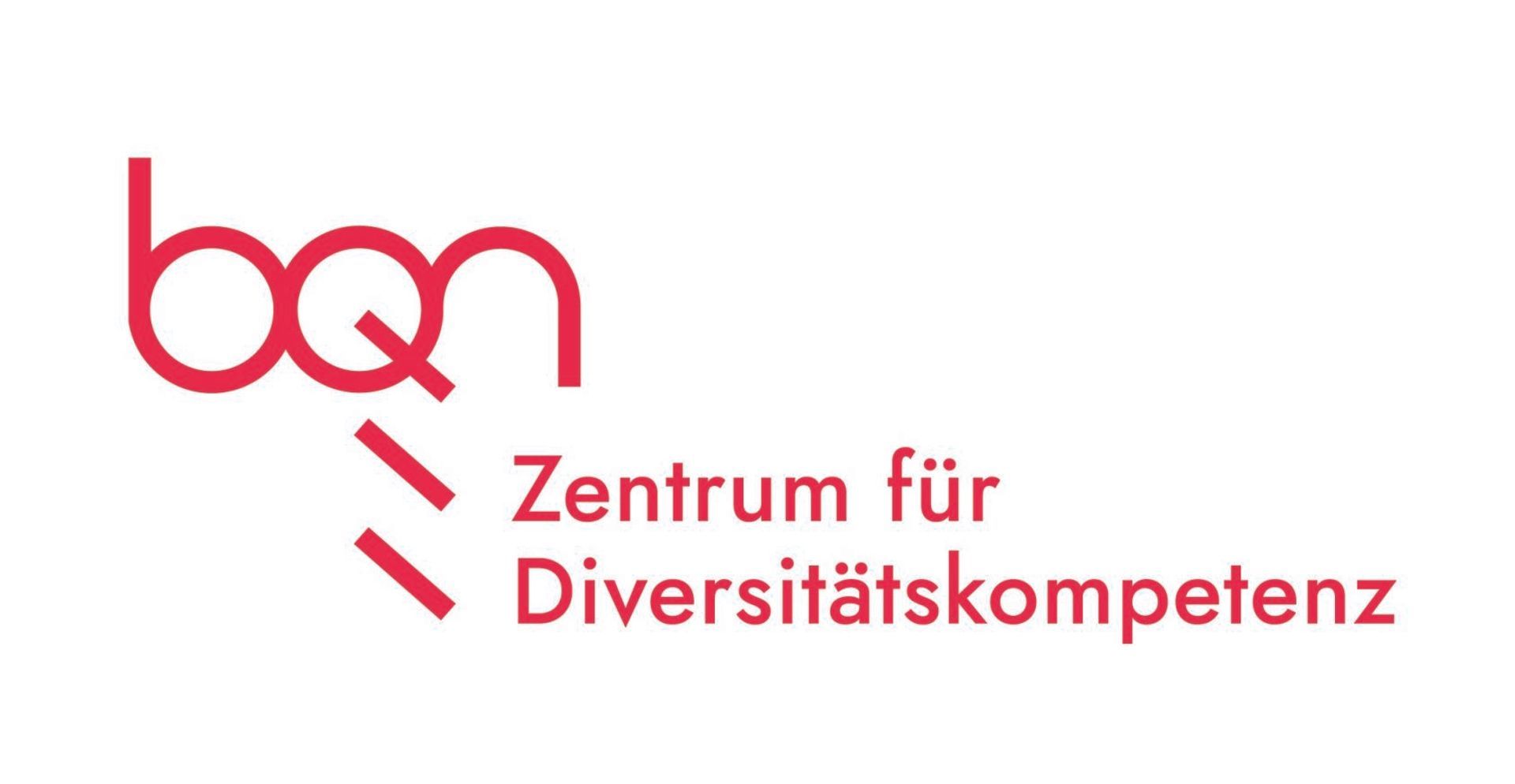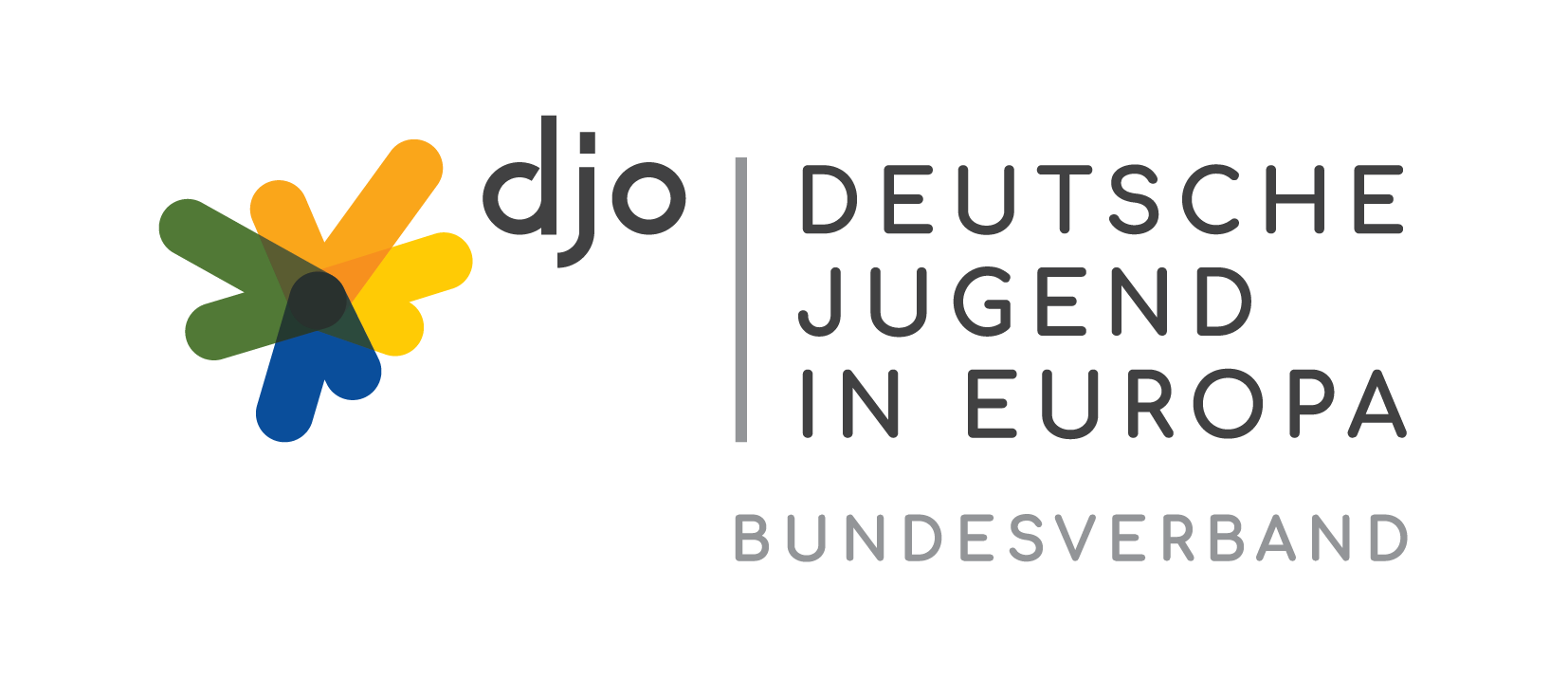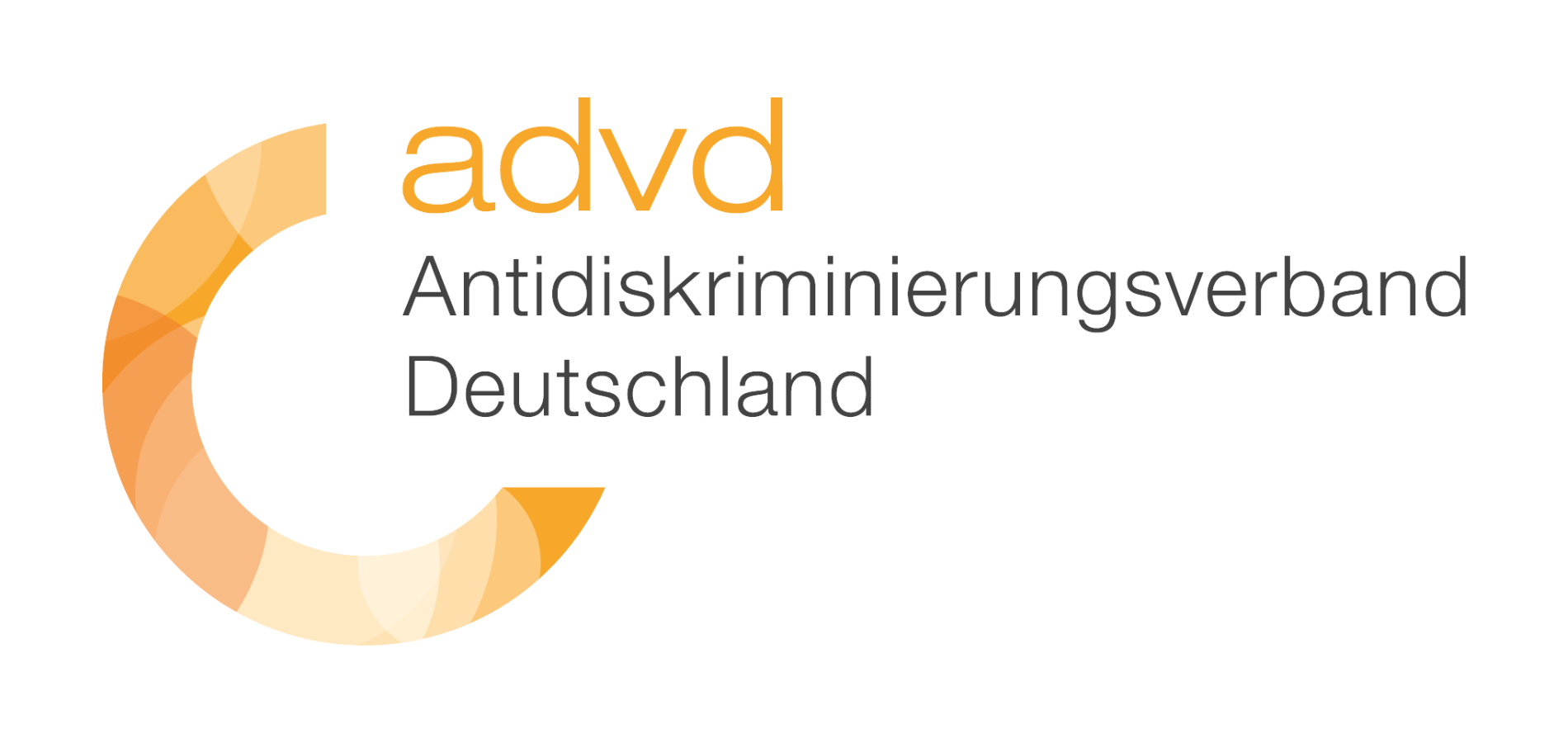Communities-based Research Making representation gaps visible Empowerment & Leadership Reducing discrimination Advocacy Taking action Cooperation Network Against RacismFundamentals for intersectional anti-racism mainstreaming (GIAM)Equality Data Survey for the Climate Finance FundRISE Leadership ProgrammeDiversity in the federal administration using the example of the Federal Ministry for Family Affairs (BMFSFJ)Afrozensus
What data do we need for the work within our communities? And which data for political demands? And what does it actually mean to do community-based research and work?
We ask questions and, in dialogue with our networks, work towards a strategy for empowerment, structural recognition and justice that is improved through analysis.
With the Afrozensus, we have shown that community surveys can be used to collect data in a responsible, participatory, intersectional way and with added value for respondents. At every step, we review the data in an ongoing process of analysis, reflection and re-evaluation: What does this mean for our communities?
Perhaps you have research, analysis or strategy needs that we can use to support your work or your communities? Whether qualitative or quantitative, we will find the right approach. Let’s talk!
hello [at] zedela [dot] org
With a representation survey, we find out how diverse your organisation, your company or entire sectors are in terms of managers and the workforce. To do this, we use an online questionnaire to collect data on all relevant dimensions of diversity. We compile the results for you in the form of a short report or dashboard - tailored to your specific requirements.
Representation data cannot stand on its own, but it is an important step in identifying possible areas where action is needed in your organisation and developing diversity-oriented strategies to meet your aspirations of promoting diversity in your organisation.
We are happy to support you with our expertise from administrative, sector, community, transnational and multilingual surveys. Under projects you will find examples of surveys in different contexts that we have already successfully conducted.
Your contact person: Deniz Yıldırım-Caliman (Head of Research), yildirim [at] zedela [dot] org
We take up the challenge of thinking together deficits in representation, critique of power and communities orientation. People in leadership positions have a special role to play here: in community contexts, they often bear formal responsibility and are therefore at the same time gatekeepers and supporters. In large organisations such as administrations, politics and companies, the question often arises as to how we can even get a foot in the door and into positions with the power to act and shape things, or how we do not reproduce the very things we ourselves criticise once we get ‘there’.
Nevertheless, and precisely for this reason, we are convinced that BIPoC communities need to address the topics of leadership and responsibility in a more targeted manner. With leadership formats such as the RISE Leadership Programme, we stand for this claim. The application phase for the next cohort in December 2024 starts on 12 August.
We develop leadership training courses to shape society with a strong sense of agency, a compass that is critical of discrimination and integrated into community organisations.
You want to know not only how diverse your organisation is, but also how different employees are doing in the work context? Is your organisation already implementing important measures to prevent discrimination, but you don’t know whether and how well they are reaching your employees?
We can help you answer these questions by collecting anti-discrimination data. Either by conducting group interviews and/or in combination with a representative survey in the form of an online survey. This way, you can identify groups in your organisation that are particularly vulnerable to discrimination and lay a data-based foundation for strategies to reduce discrimination.
Take a look at the study ‘Diversity in the federal administration using the example of the BMFSFJ’ to get a better idea of what the collection of anti-discrimination and equality data can look like in the context of an administrative organisation.
Your contact person: Deniz Yıldırım-Caliman (Head of Research), yildirim [at] zedela [dot] org
Even the best data does not automatically lead to change. Data and analyses must be set in motion and placed in the right place at the right time with the right people - combined with strategy and focus. With our work, we develop the basis for targeted political advocacy in order to translate community expertise and experience into strategies and administrative measures. In the GIAM project, we exchange views across communities on which statistics and narratives are particularly promising for communicating the experiences of racially discriminated communities and work on legal isues with strategic relevance.
You want to stimulate discussion among managers in your organisation in a basic presentation on diversity and discrimination? Perhaps you are already planning a survey of representation data, but don’t know what standards and pitfalls to look out for in the survey process and in the choice of methods?
We provide impulses, give presentations and design workshops on topics relating to anti-discrimination and equality data, empowerment and positive action.
Based on our research and analyses, we develop recommendations for action for diversity and empowerment-oriented developments in organisations and specialist areas.
We are happy to provide you with our expertise and customised formats - from impulses and event moderation to strategic consulting.
Contact: hello [at] zedela [dot] org
Project duration: since January 2025
Funded by the Federal Ministry for Education, Family Affairs, Senior Citizens, Women and Youth (BMBFSFJ)
zedela is a partner in the Cooperation Network Against Racism in the federal program “Demokratie leben!” in the program area “Development of a federal infrastructure”.
Taking racism seriously as a social inequality means tackling it at various levels of society. In practice, however, it is often the case that individual phenomena of racism are neither recognised nor sufficiently highlighted. This is precisely why it makes sense to work in a nationwide structure with different actors focussing on different issues. The Cooperation Network Against Racism brings together seven professional, diverse and intersectional organisations that work in a way that is critical of racism and discrimination. The aim is to establish a nationwide structure on the topics of anti-racism and empowerment of groups that are vulnerable to racism. The network focusses on the interactions between different forms of discrimination and takes into account the diversity of communities. A structured, strategic and effective approach is taken to address the complex challenges at an individual, structural and institutional level. The focus is on network building, professionalisation critical of racism and the promotion of (specialist) knowledge through various measures.
The Cooperation Network consists of the following organisations:
- CLAIM gGmbH (coordinating organisation)
- Verband binationaler Familien und Partnerschaften, iaf e V.
- Each One Teach One (EOTO) e. V.
- RAA Berlin e. V.
- korientation. Netzwerk für Asiatisch-Deutsche Perspektiven e. V.
- ZEOK e. V.
- Zentrum für Data-driven Empowerment, Leadership und Advocacy (zedela) gUG (haftungsbeschränkt)
As part of the Cooperation Network Against Racism, zedela is committed, among other things, to the further development of a community-based leadership approach that is critical of power and racism. To this end, case studies are being produced as training material this year.
In addition, zedela is examining strategies and challenges of Black, Afro-diasporic and African organisations, initiatives and projects in Germany with regard to financial resources and funding mechanisms. If you are interested, we invite you to take part in the survey.
Further information can be found on the project page of the BMBFSFJ.
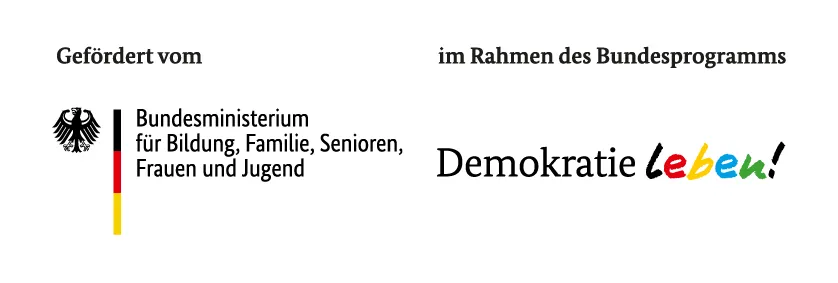
Project duration: March 2024 - March 2026
Funded by the Federal Government Commissioner for Combating Racism
Diversity-oriented organisational development processes often still scratch the surface due to numerous technical hurdles. The translation of racism-critical, diversity-orientated measures into the everyday reality of institutions is therefore only partially successful. This is another reason why the representation and comprehensive participation of racially discriminated people has not yet been achieved.
Against this background, in the context of this project we are developing professional frameworks for anti-racism mainstreaming strategies in organisations and strengthening the expert discourse that is necessary for a professionalisation critical of racism in an immigration society.
To this end
- we provide expert input in the field (e.g. on racism, anti-discrimination data, empowerment and leadership),
- we advise organisations and community actors (e.g. on data collection in the context of racism-critical organisational development),
- we conduct workshops (e.g. on the development of graphics for a standardised presentation/visualisation of (missing) representation),
- we implement a design workshop for the exchange of best practice examples for communicating experiences of discrimination
- we identify and clarify strategically relevant legal areas and issues for the equality of racially discriminated people
- we statistically define diversity clusters in order to record racially discriminated people and at least the discrimination characteristics protected by the General Equal Treatment Act (AGG) in surveys and to be able to implement intersectional analyses.
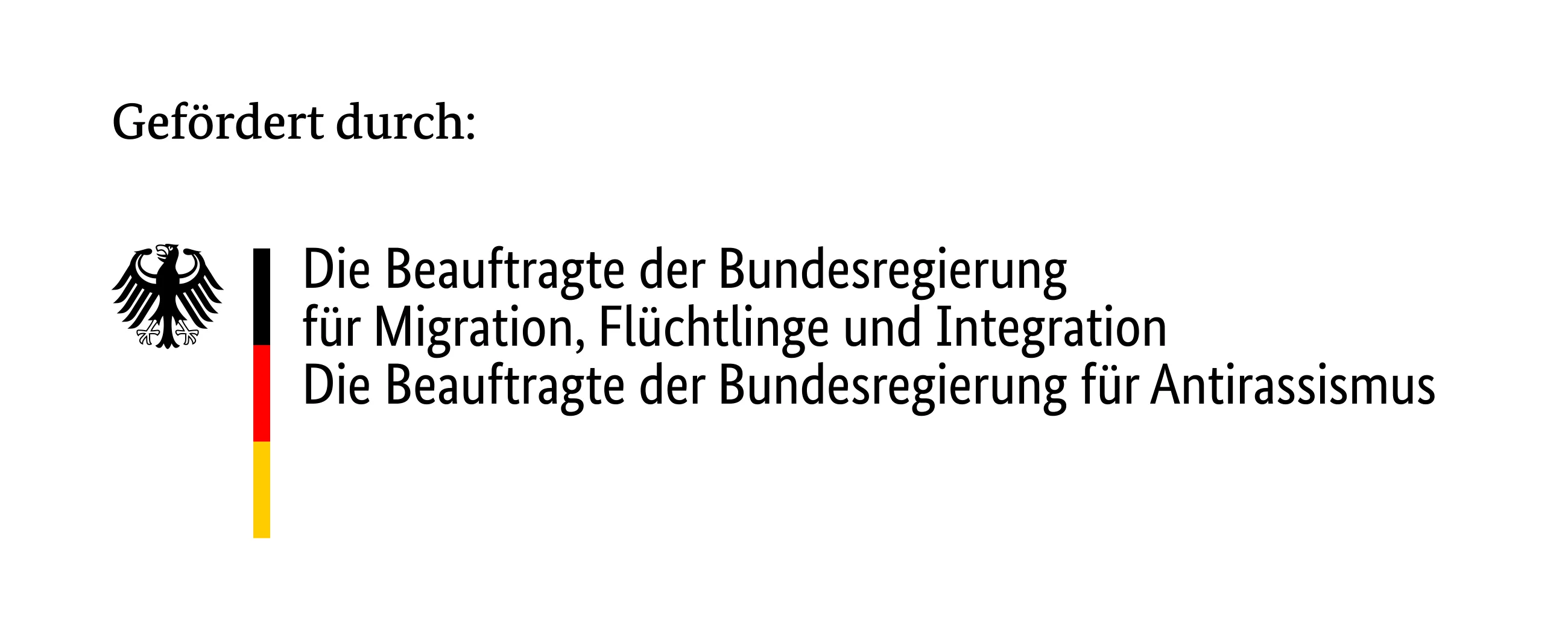 The publication does not represent an expression of opinion of the Federal Government Commissioner for Migration, Refugees and Integration, who is also the Federal Government Commissioner for Anti-Racism as the funding organisation. The Centre for Data-driven Empowerment, Leadership and Advocacy (zedela) gUG bears sole responsibility for the content of this publication. The Commissioner expressly distances herself from all content that may be relevant under criminal or liability law.
The publication does not represent an expression of opinion of the Federal Government Commissioner for Migration, Refugees and Integration, who is also the Federal Government Commissioner for Anti-Racism as the funding organisation. The Centre for Data-driven Empowerment, Leadership and Advocacy (zedela) gUG bears sole responsibility for the content of this publication. The Commissioner expressly distances herself from all content that may be relevant under criminal or liability law.
Project duration: September 2023 - December 2025
Supported by the Climate Finance Fund
Climate finance is a key component of climate policy. The latter can only be successful if inequalities in the climate sector are addressed. Against this backdrop, the representative study in cooperation with the Climate Finance Fund examines the diversity of executives and board members among all organisations and companies supported by the Climate Finance Fund in Europe in terms of ‘ethnic’ origin, disability, age, sexual identity, caring responsibilities, social background and gender. A total of 20 organisations from five European countries took part in the survey. The survey was conducted in English, French and German in compliance with the GDPR and country-specific data protection regulations. The study enables both a performance review and possible strategy adjustment for the CFF, which has set itself the goal of providing increased support to organisations that are led or owned by people of colour or women and work on climate-friendly financing solutions.
We Rise, You Rise
Project duration: January 2023 - February 2025
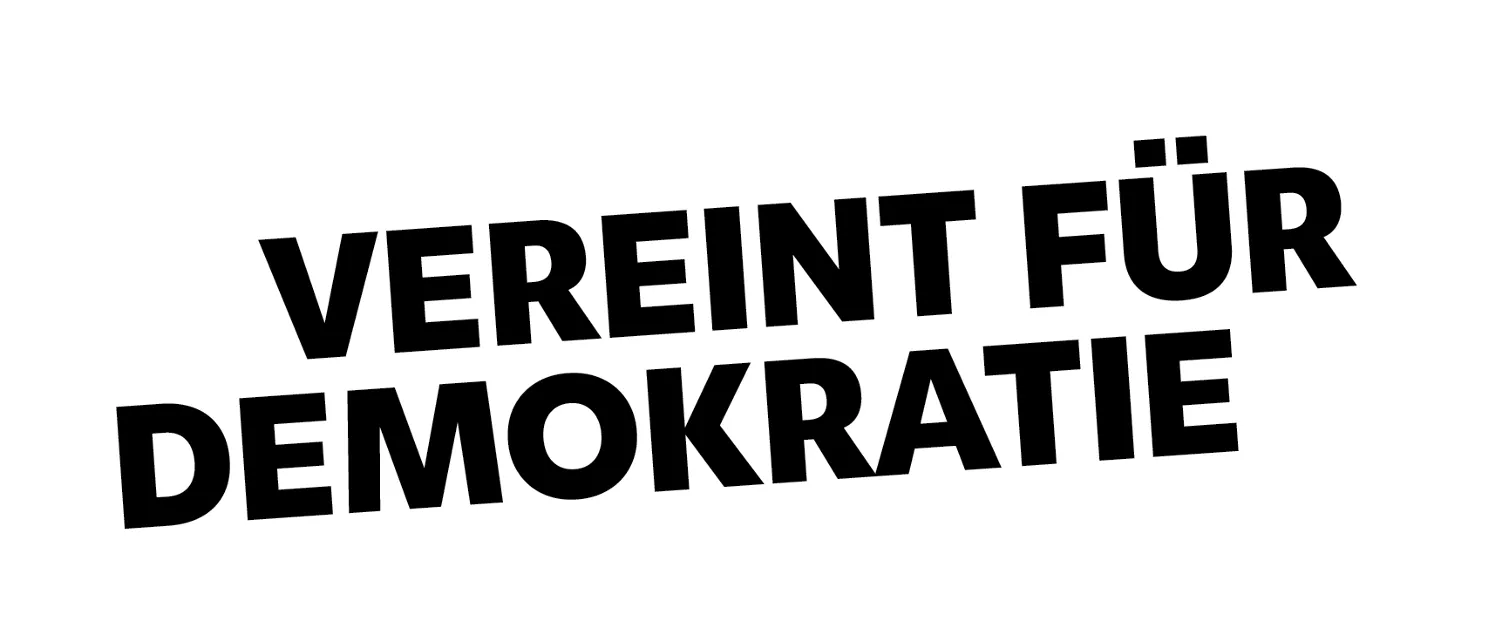
The Rise Leadership Programme was developed by us with Lead Forward in cooperation with the neuen deutschen Organisationen (new German organisations).
We know that representation alone is not enough when it comes to driving sustainable structural change in society. That’s why in the RISE Leadership Programme we are exploring how deficits in representation, criticism of power and an orientation towards community can be considered in their interconnectedness - and in relation to leadership and responsibility. So that BIPoC do not just become visible in leadership positions, but also in connection with their communities, think about the concerns of people who are vulnerable to racism and discrimination and make decisions that benefit everyone and not just a few who make it to the top.
The programme is aimed at BIPoC, especially Black people, Sinti*zze and Rom*nja, as well as people from the Asian-diasporic, Muslim and Jewish communities aged 20-35, from different educational and social backgrounds. In an intensive one-week format, two cohorts of 25 participants from all over Germany met in Berlin last year in April and October 2024 to discuss topics relating to taking responsibility and leadership from perspectives critical of discrimination and racism. Numerous experts from different community contexts provided inputs and opened up spaces for discussion.
The experiences with the first cohort have emphasised the importance of the pilot project: there are too few spaces in which we can deal with the topics of leadership across communities and in a way that is critical of discrimination. Experiencing the connections, inspiration and shared visions that this very intensive week can create was also a very empowering experience for us.
Supported by the Verein für Demokratie Fonds - an initiative of the Allianz Foundation and Project Together gGmbH.
Project duration: July 2021 - December 2023
The project analysed diversity in the federal administration using the example of the Federal Ministry for Family Affairs, Senior Citizens, Women and Youth. Using a multi-method design, the barriers and structural access restrictions for people with a so-called migration background and people with other dimensions relevant to discrimination that systematically impede access to and retention in the civil service were analysed. Based on this, recommendations for action were developed for a diversity strategy for the BMFSFJ in order to increase diversity in the ministry, reduce discrimination in everyday work life and minimise structural barriers or exclusion mechanisms for people outside the ministry.
The ‘Diversity in the Federal Administration’ project was implemented by the DiBu project group under the auspices of the German Centre for Integration and Migration Research (DeZIM). The zedela team was primarily responsible for the conceptualisation and implementation of the quantitative employee survey (see project report chapter 2.2, p. 21)
The project was of particular importance because, for the first time, all employees of a federal ministry had the opportunity to answer questions on all diversity dimensions protected by the General Equal Treatment Act and the results were incorporated into the federal government’s diversity strategy.
The central questions of the project were :
- Status quo: how diverse is the employee structure at the BMFSFJ and what are employees’ attitudes towards diversity?
- Internal perspective: How is diversity and discrimination experienced in everyday working life? What experiences of marginalisation and racism have employees had? How do employees describe the culture of diversity in the ministry and their diversity-orientated actions? What existing anti-discrimination and diversity-promoting measures are known?
- External perspective: How attractive is the BMFSFJ for people from groups that are vulnerable to discrimination outside the ministry? What structural barriers and exclusion mechanisms are perceived by people with characteristics relevant to discrimination?
Key findings of the quantitative employee survey:
- Employees with a migration background (17.2% in the BMFSFJ vs. 30.6% in the population), with a history of immigration (7.4% vs. 27.5%) and employees who are vulnerable to racism (4.2% vs. 18.7%) are underrepresented in the BMFSFJ compared to their proportion in the population as a whole. Female (72.6% in the BMFSFJ vs. 46.8% in the population), queer (14.1% vs. 9%) and East German employees (32.9% vs. 20%) are more strongly represented.
- Despite a high level of job satisfaction (77% enjoy their work, 79% are proud of their job), 16.2% of employees have experienced discrimination. Particularly affected are employees with disabilities, immigrants, employees who are vulnerable to racism, non-Christian employees and women with caring responsibilities.
- Over 52.9% of employees see a lack of awareness of the problem as the greatest obstacle to diversity. 88.4% emphasise the importance of an authentic diversity attitude at management level.
Further information and the publication can be found on the DeZIM project page.
Project duration: June 2019 - December 2021
The Afrozensus is the first comprehensive study on the life experiences of Black, African and Afro-diasporic people in Germany. Among other things, it consisted of an online survey in which around 6,000 Black, African and Afro-diasporic people aged 16 and over took part between July and September 2020. The study covers the following topics: Engagement, experiences of discrimination in 14 areas of life, dealing with discrimination, patterns of anti-Black racism as well as resilience and empowerment. The topics of health and education were explored in greater depth in separate chapters with results from qualitative interviews and focus groups. Throughout the research process, the project team paid particular attention to the human rights-based principles of data collection such as self-identification, transparency, protection of privacy, voluntary participation and, above all, the involvement of representatives of the study’s target groups (e.g. community consultations and town halls).
The project was concluded with a comprehensively illustrated, over 300-page report on the realities of life for black, African and Afro-diasporic people in Germany. It is available for download on the Afrozensus homepage in German (and in English soon). Using the Afrozensus Data Explorer, it is also possible to take a look at aggregated data, some of which is not published in the report.
The Afrozensus is a flagship project for community-based research in German-speaking countries and is listed by the European Union Agency for Fundamental Rights as a promising practice for the collection of equality data.
The Afrozensus was realised by Each One Teach One e.V. in cooperation with Citizens For Europe (CFE) and funded by the Federal Anti-Discrimination Agency. The co-authors of the Afrozensus, who were formerly employed by CFE, are now partners at zedela. We contribute our experience and expertise from the Afrozensus project and regularly give presentations on the results and lessons learnt from the survey on request. The English translation of the Afrozensus website was realised by us with funding from the Bosch Stiftung and will go online in a few weeks.
If you have any questions about the Afrozensus, please contact afrozensus [at] eoto-archiv [dot] de directly.
Our Work
Our Offers
We conduct online surveys of anti-discrimination and equality data in Germany and throughout the EU - GDPR-compliant, anonymised and covering all dimensions of diversity.
Either as a pure representation survey - to understand how diverse managers and the workforce are, for example - or expanded to include questions on experiences of discrimination.
Tailored to your organisational context, we develop the data-based foundations for you to promote diversity and reduce discrimination.
Communities-based Research
“For us, by us“
Empowerment & Leadership
"When you get these jobs that you have been so brilliantly trained for, just remember that your real job is that if you are free, you need to free somebody else. If you have some power, then your job is to empower somebody else." (Toni Morrison)
Advocacy
“Power is never given, you have to take it.” (Beyoncé)
Making representation gaps visible
Reducing discrimination
Taking action
Projects
Cooperation Network Against Racism
Project duration: since January 2025
Fundamentals for intersectional anti-racism mainstreaming (GIAM)
Project duration: March 2024 - March 2026
Equality Data Survey for the Climate Finance Fund
Project duration: September 2023 - December 2025
RISE Leadership Programme
We Rise, You Rise
Project duration: January 2023 - February 2025
Diversity in the federal administration using the example of the Federal Ministry for Family Affairs (BMFSFJ)
Project duration: July 2021 - December 2023
Afrozensus
Project duration: June 2019 - December 2021
Team
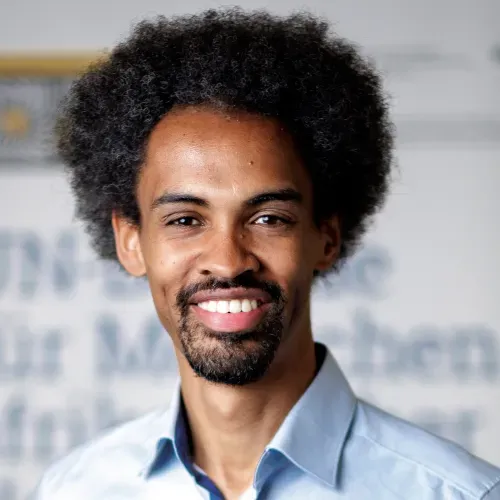
Daniel
Gyamerah
Director

Deniz
Yıldırım-Caliman
Head of Research
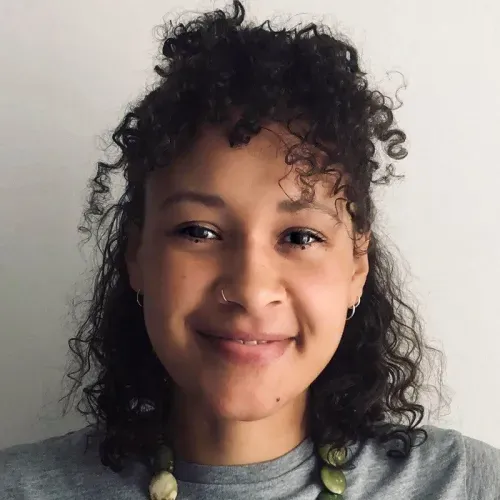
Teresa
Ellis Bremberger
Researcher
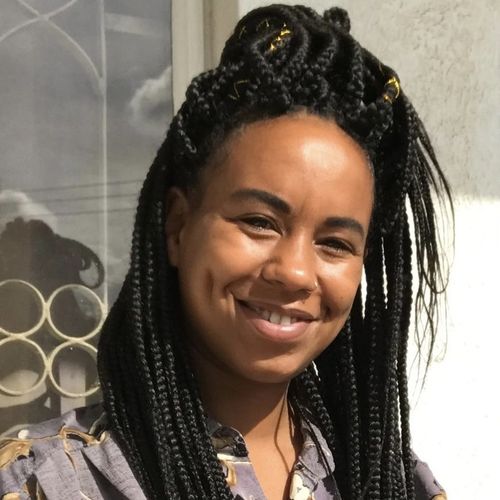
Sina
Aping
Researcher
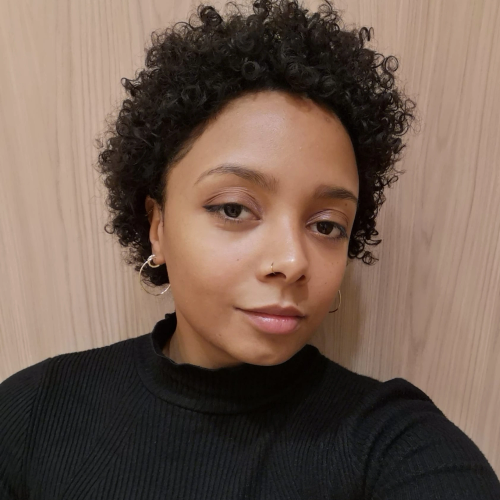
Jamila
Mouhamed
Researcher

Dr. Farnush
Ghadery
Researcher
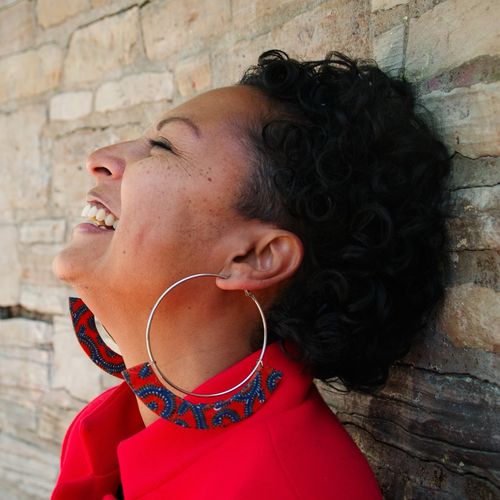
Dr. Aki
Krishnamurthy
Researcher

Shirley
Inafa
Communication Officer
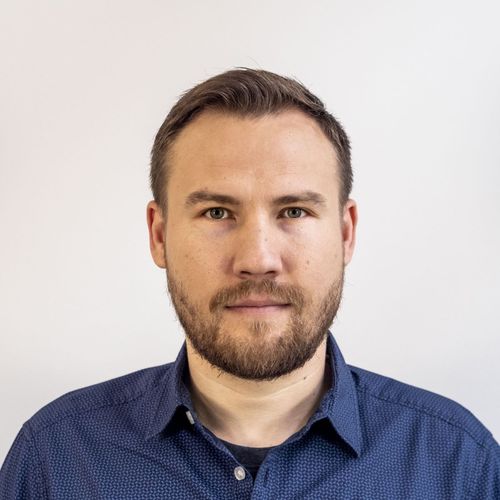
Ilja
Sperling
Tech Lead
Contact
hello [at] zedela [dot] org
Newsletter
Please enter your email address to subscribe to our newsletter.
Funders
Funders and References
